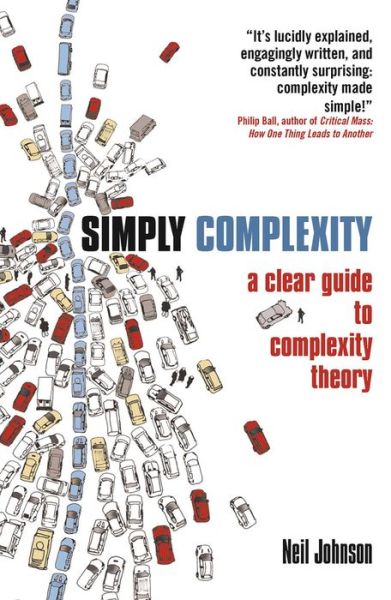Simply Complexity: A Clear Guide to Complexity Theory book download
Par domingo douglas le mercredi, novembre 4 2015, 21:52 - Lien permanent
Simply Complexity: A Clear Guide to Complexity Theory by Neil Johnson


Simply Complexity: A Clear Guide to Complexity Theory ebook download
Simply Complexity: A Clear Guide to Complexity Theory Neil Johnson ebook
ISBN: 9781851686308
Page: 256
Publisher: Oneworld Publications
Format: pdf
Jul 1, 2007 - The two parts nicely complement each other, providing the reader with a clear picture of a relevant portion of complexity theory and its possible application to evolutionary economics. Pingback: Misleading models: “How learning can guide evolution” | Theory, Evolution, and Games Group. Aug 31, 2013 - The paper combines the discussion of evolution from my previous few blog posts with three simple technical results. Oct 12, 2010 - Complexity theory argues that simple, complicated, complex and chaotic systems have fundamentally different properties, and therefore different approaches and processes are needed when dealing with issues and challenges in each of these types of systems. Jun 15, 2007 - It seems that all of them concur with the assessment that complexity is more than a metaphor, but less than a theory of the current dynamics of international life (p. Stuart Kaufmann's NK model, widely discussed in the second chapter of the book In spite of the 'complexity' of the topic, the prose is kept simple and continuous references to exemplifications guide the reader through the book. This is how you navigate through complex predicaments, where the outcome is unknown so there's no clear path from current state to desired future state. The step-by-step process has to be so clear and easy to understand that even a computer can understand it and use it to solve Sudoku puzzles automatically and very fast. Feb 27, 2011 - I am taking a master's course on theory of computation. Actually this question means that is there a way that we can find a simpleler solutuion for finding the best strategy or ordered list of moves for a chess game without going through all the billions of possibilities just like we do for a simple addition? This argument was shown to have an unreasonable physical basis, but from a modern perspective was also lacking because there is not a clear way to characterize biological complexity or relate it to requisite time-scales.